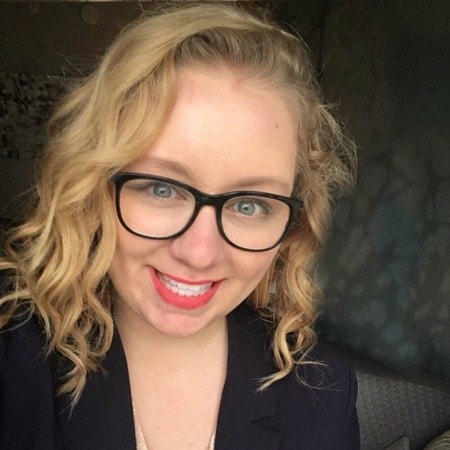 ,by Shana Prohofsky Have you experienced a life transition during COVID that has left you feeling adrift? Perhaps you are looking for a way to feel more anchored, less lonely, or less bored? Many of us have spent the past few weeks, during the High Holidays, reflecting on the past year. But what if we go even further and take an extended look into the past? What if this look back could provide us with a newfound sense of contentment with ourselves? In the book, Wise Aging: Living with Joy, Resilience, & Spirit, by Rabbi Rachel Cowan and Linda Thal, the authors propose a life review exercise, which aims to provide a chronologically descriptive, organized method of looking at our life’s journeys. The authors provide specific instructions on how to map out our lives, as if they are rivers, and to consider them stage by stage. Mapping allows us to explore the path of our personal river of life – where it has taken us, and where it might flow in the future. This exercise affords us with the opportunity to interpret the stories of our lives in multiple ways. We engage in nostalgia, we look for and recognize patterns, and we work towards attaining a non-judgmental relationship with ourselves. This new realization of our past can help us to feel more grounded in the present and comfortable moving forward into the future. Let’s explore the methods of interpretation and their benefits more closely. Engaging in nostalgia: Reminiscing is a normal reaction to stress and uncertainty. Focusing on positive moments of nostalgia offers us comfort, providing a temporary escape from emotionally stressful situations. Nostalgia also alleviates loneliness because in remembering a past event, we tap into pleasurable experiences, which are tied to persons with whom we shared those experiences, and we are reunited, if only in our minds, for just a moment. There are elements of nostalgic moments that you can bring into the present and incorporate into your self-care routine. Rediscover music, books, or television shows that you enjoyed in the past. Look at pictures of life events and reconnect with a family member or friend, by phone or in writing, sharing the memories with them. Eat a food that you found comforting and delightful in the past. Revel in these rediscovered experiences and find moments of happiness. Seeing patterns: While memories may tend to jumble together, when we look at events across our lifespan in chronological order, we can see that just like a river, periods of time in our life go rushing joyously by, but there are also periods of slow down and pools of stagnation brought on by loss or other challenges. We are able to see what came before, what came after, and what resources we were able to draw upon to get us to the next stage. Perhaps these resources were drawn from within us or from external support given by family, friends, or professional counselors. While some of the external supports might no longer be available to you, such as a loved one who has passed away, you can still draw on what you learned from them. Additionally, it might be easier to deal with the unpredictable nature of life during COVID, realizing that we have handled many changes before and adapted to difficult situations in the past. We can examine what we were able to control, and what was beyond our ability to control. The strength and resilience we gained from working through past struggles helps us in our ability to cope with our current situations. Finding contentment: Life review allows us to view past events with a more knowledgeable and forgiving eye. While we cannot change what happened in our lives, we can change how we perceive those events and what we can learn from them and apply to our lives. For example, maybe now we can see that the loss of a job led to a better opportunity, or a loss created the space for a new but different love. These realizations allow us to have a more accepting relationship with ourselves. By moving through the steps outlined above, we may find ourselves able to reflect on the events of our lives with a new understanding of who we are and where we have been. These gains in perspective allow us to feel more secure moving into the future, knowing we are stronger and more resilient when faced with challenges than perhaps we previously thought. Are you interested in mapping out your very own river of life? Please join me and my Kesher co-worker Tara on Zoom on Tuesday, October 13, 2020 at 12 p.m. for "And So It Flows," an expressive arts program inspired by the book Wise Aging: Living with Joy, Resilience, & Spirit by Rabbi Rachel Cowan & Dr. Linda Thal. During the program, we will guide you through a life review exercise to help you gain perspective on your personal journey. https://us02web.zoom.us/j/83134455874?pwd=eWZUR3RReUh2QXRWV1BEQmowNmlNQT09 If you would like to participate in this activity but are unsure if it might bring up unpleasant feelings, I encourage you to first discuss it with your personal mental health provider, or either Tara Watkins or myself. Please keep in mind that the BH Link hotline, 401-414-LINK (5465), is available to provide free 24/7 mental health support and consultation. The national suicide prevention hotline is 1-800-273-TALK (8255). Also, as the Kesher worker for the temple, I am available to connect you to necessary community resources to help address struggles you may be experiencing during these challenging times (phone: 401-428-4084 or [email protected]). Please note that Kesher is not for immediate emergency situations. Article References Breines, J. (2020, Mar. 18). 10 Ideas for Coping with Loneliness During Social Distancing. Psychology Today. https://www.psychologytoday.com/us/blog/in-love-and-war/202003/10-ideas-coping- loneliness-during-social-distancing. Campoamor, D. (2020, July 28). Why We Reach for Nostalgia in Times of Crisis. New York Times. Nytimes.com/2020/07/28smarter-living/coronavirus-nostalgia.html. Cowan, R., & Thal, L. (2015). Wise Aging: Living with Joy, Resilience, & Spirit. Dreher, D. (2020, Jan. 22). Why Loneliness Is Hazardous to Your Health. Psychology Today. https://www.psychologytoday.com/us/blog/your-personal-renaissance/202001/why-loneliness-is- hazardous-your-health. Comments are closed.
|
Samantha ClarkSamantha Clark is part of the Kesher Worker team at Temple Sinai. Kesher is the congregational outreach program of Jewish Collaborative Services of Rhode Island, funded by the Jewish Alliance of Greater Rhode Island and private donors. Katie can be reached at 401.415.8213 or by emailing Archives
April 2021
Categories |

Affiliated with the Union for Reform Judaism
30 Hagen Avenue • Cranston, RI 02920 • 401-942-8350 Office: dottie@templesinairi.org Rabbi Jeffrey Goldwasser: [email protected] |
Want to sign up for the weekly Sinai Scroll email?
Click here to receive weekly updates on Temple services, events and a message from the Rabbi. |


 RSS Feed
RSS Feed

